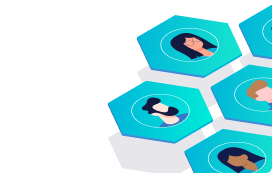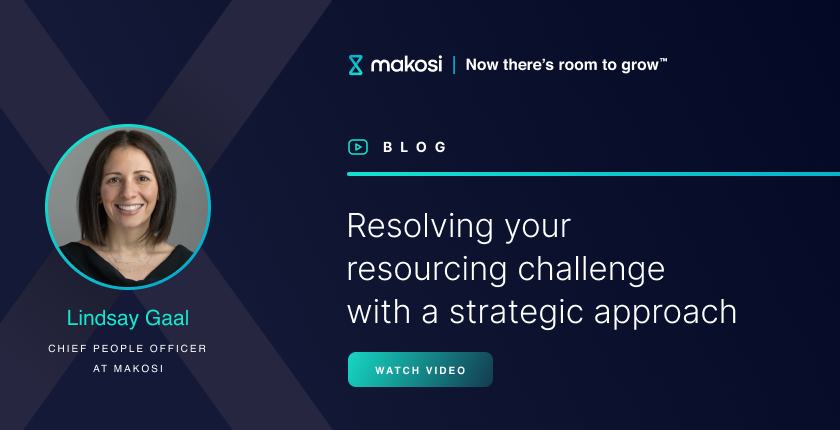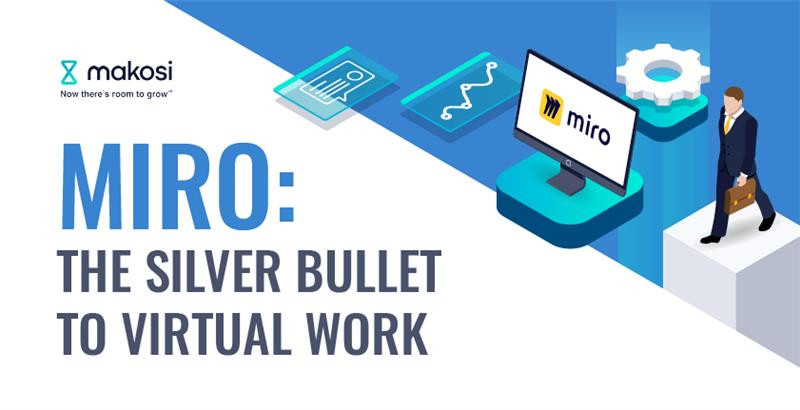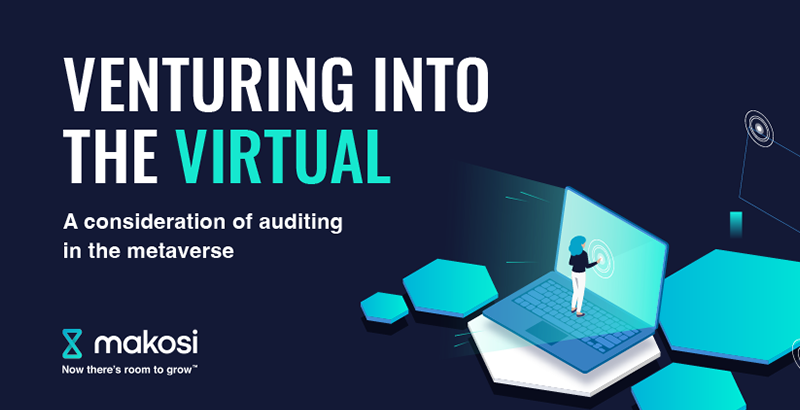Mindset Over Skillset
Tapping Into Mindset Theory to Recruit and Retain Talent
April 27 2020 • 8 min read

Tapping Into Mindset Theory to Recruit and Retain Talent
Introduction
It’s easy to run through a checklist of degrees, proficiencies, and extracurriculars when looking for your next employee. But a summary of skills—like that provided by the traditional resume—will not tell you how a potential hire will handle a tight deadline, or communicate with their coworkers in stressful situations. It certainly can’t tell you about their passion or willingness to solve complex problems.
Between the digitization of data and the increasing prevalence of technology in the workplace, the skill sets required to stay competitive and high-performing are rapidly changing. Today’s audit departments—and their leaders—are being asked to perform under increasingly fast-paced and unpredictable conditions.
At the same time, audit departments face a reduction in available skilled workers. A recent AICPA report indicated the number of candidates taking the CPA Exam in 2018 dipped to its lowest level in 10 years. Those who do complete their education are experiencing high levels of burnout, resulting in expensive turnover rates. In fact, some firms we speak with report 70% of graduate hires leave before attaining the level of audit senior. Clearly, something needs to give if audit expects to recruit and retain talent.
It’s time to empower the audit department and find creative staffing solutions that start emphasizing mindset over skillset in new hires.
As you read on, you’ll find:
- The impact of technology, the digital revolution, and the gig economy on the current auditing industry.
- The primary difference between mindset and skills, as well as the benefits and characteristics of each in terms of professional development.
- How mindset effectively constitutes a skill set and an evaluation of how so-called “soft” skills benefit productivity.
An industry in flux
We’re living in a digital world where automation reigns supreme, and information is available from anywhere, at any time, with just the click of a button. As a society, how we experience and process information has fundamentally changed. Increasingly, clients demand instant results, and they’re willing to pay premium prices for them. However, many audit departments are firmly rooted in the past. Audits are often completed periodically, though the reports are intended to be timely and relevant to those in decision-making positions. As a result, the industry is at a crossroads.
A 2015 report published by the American Accounting Association and authored by professors Lombardi, Bloch, and Vasarhelyi, found consensus in a panel of experts. Overall, they noted that “although the auditing profession is beginning to evolve to incorporate new advances in technology and become more sensitive to changes in the global economy, it will further incorporate technology over the next decade to allow auditors to produce continuously audited financial statements, have more guidance in making important judgments, and shift their focus to evaluate risks rather than focusing on transactional data.”
As the industry evolves to stay relevant in a digital world, it follows that the approach to workforce recruitment, training, and retention will also have to change. The AICPA says it best in their 2019 report, claiming, “We believe that for CPAs to continue to serve the marketplace, they must incorporate new and different skillsets and that it is incumbent upon the profession to take steps to cultivate these rapidly changing skills in accounting graduates and newly licensed CPAs.”
The impact of the gig economy
In addition to specific changes in the audit industry, the American workforce, in general, has evolved. According to Apex Analytics, a recent report from analysts at Ardent Partners found nearly four out of every ten workers hired by businesses today are gig workers and not permanent employees. This “flex” workforce is becoming a fixture in a wide range of organizations and functions—from call centers and IT support to warehouses, construction teams, oil fields, and more.
The gig economy is both freeing and limiting. In one respect, today’s gig workers can set their own schedules, and contract with different companies to gain broad experience. However, they also have less financial security, rarely have benefits, and lack the incentive to perform highly. How could they without fully investing in the company’s long term vision and goals?
The modern difficulty
With declining rates of qualified graduates and more competition from the gig economy’s flex workforce, many employees are at an impasse when it comes to hiring and retaining top talent. The traditional behaviorist solution relies on rewards and employee incentives. Rewards for performance might include commissions on sales, stock options for senior executives, and special privileges granted to an Employee of the Month. More recently, we’ve seen an influx of in-office “self-care” perks and incentives like flex hours, ping pong tables, and on-site massage. But are these strategies useful in the long run, or just covering a deeper problem?
According to a recent analysis by the Harvard Business Review, “Money, vacations, banquets, plaques—the list of variations on a single, simple behaviorist model of motivation is limitless… What we use bribes to accomplish may have changed, but the reliance on bribes, on behaviorist doctrine, has not.”
If we have to bribe fresh graduates and newly licensed CPAs to boost productivity, prevent burnout, and keep them in the field, perhaps we’re doing something wrong on a fundamental level. Perhaps incentives and rewards are an attempt to cover up a systemic problem that’s rampant in the auditing industry: a lack of focus on cultivating a success mindset.
Understanding the difference between mindset and skillsets
Often the terms “mindset” and “skill set” are presented as dichotomous and skills supersede in terms of employability. However, we posit that the ability to cultivate a particular mindset is the most critical skill an employee can develop. Let’s consider the definition of each in turn and how mindset can be regarded as a skill.
A skill is an ability or activity that can be learned. It includes specific, measurable actions, such as operating a firm’s software or balancing a complex spreadsheet. Your mindset or attitude, on the other hand, is your outlook on the world. It’s the unique lens that allows you to navigate life, the state of mind that determines how you interpret what you see, experience, think, and believe. According to behavioral theorists, it’s an amalgamation of internal and external forces—shaped by your personality, your circumstances, and others’ perceptions and expectations of you.
Now imagine if a particular mindset could be learned, practiced, and refined like any other skill.
The value of mindset
Imagine you have two employees. They graduated from the same class, scored the same on their CPA exams, and have comparable work experience. However, when presented with a challenging work situation, one employee feels threatened, defensive, and tries to solve problems by the book. The other welcomes the challenge, doesn’t fear failure, and can find creative solutions to complex problems. That’s the power of mindset.
For over 30 years, Stanford psychologist Dr. Carol Dweck has researched mindset theory. Summarily, she found that individuals who believe their talents can be developed—through hard work, good strategies, and input from others—have what she terms a growth mindset. They tend to achieve more than those with a more fixed mindset, or those who believe their talents are innate. This is because those with a growth mindset worry less about looking smart and put more energy into learning.
The other significant finding is that mindset can be influenced through appropriate coaching and training. Dweck and her research team have worked with thousands of children to show the benefits of cultivating a growth mindset. Their work was particularly efficacious when growth mindset theory was applied to struggling and disadvantaged students. For example, in one year, a Kindergarten class in Harlem, New York scored in the 95th percentile on the National Achievement Test. According to Dweck, many of those kids could not even hold a pencil when they started the school year.
Now, of course, holding a pencil is a skill that can be taught and learned. However, curiosity, a willingness to engage and learn, and the desire to push past perceived barriers are all attributable to mindset.
The pillars of mindset in the workplace
HR departments across the world are beginning to understand the value of “soft skills,” things like communication skills, empathy, curiosity, resilience, and an ability to think creatively. These soft skills, coincidentally (or not!), are also some of the markers of a growth mindset. At Makosi, we cultivate a mindset based on curiosity, accountability, and resilience. These characteristics serve them both in and out of the office.
Curiosity
In today’s fast-paced, volume-focused workplaces, curiosity has fallen by the wayside. As organizational psychologist, Sesil Pir writes for Forbes, “It is a fact [that the] majority of our work cultures are more concerned with the survival of status quo and enforcement of values that support absolute order in reach of a KPI rather than diversity of thought, emotions, experience and unified rejoice of discovery.” And yet, curiosity is precisely what is required to meet the challenges of changing social and economic spheres head-on. Curiosity is the space employees can go above and beyond to meet a client’s needs. And with the right mindset, the challenge of the work itself becomes the reward.
Accountability
Those with a growth mindset are not afraid to fail. Instead, they recognize failure as an inevitable part of the growth process. They own their mistakes, and as a result, can learn from them and refine their skills for future applications. Employees who hold themselves accountable will be less likely to cut corners, make excuses, or try to hide mistakes to avoid punishment. Plus, when employees don’t believe having to work hard reflects poorly on their intelligence or skill, they’ll be more likely to ask questions and seek advice to avoid mistakes in the first place.
Resilience
Hand-in-hand with accountability is resilience. When employees are not afraid to own their failures, they’re not crippled by it. This is because employees with a growth mindset don’t measure their worth by individual instances. Instead, they rely on long-term markers of progress.
This is not to say that employees with a growth mindset take unnecessary risks or intentionally seek out scenarios in which they’ll fall flat. After all, they’ll still have the training, skills, and certifications required to get a job done and done right. The difference is that these employees don’t believe failure changes who they are as a person.
Mindset: your workforce’s most valuable skill
Mindset plays a critical role in how effectively individuals manage stress and meet life’s challenges. This is true, both in our personal lives and in the workplace. A growth mindset breeds resilience, promotes creativity, and encourages outside-the-box thinking.
Consider the following. There are plenty of people in the workforce who can perform an audit. This is a skill that can be trained, practiced, and refined. However, there are relatively few who can perform an audit accurately and efficiently under pressure. While juggling other professional responsibilities. And while maintaining open and amicable communication with their team and supervisors. This is the difference that mindset makes.
Makosi’s unique approach focuses on cultivating a mindset of accomplishment, possibility, and empowerment. Instead of being obstacles, we view breakdowns and setbacks as opportunities to find solutions and improve processes. Not only does this pay off in the short term—with the right mindset, the work does not get derailed. But it also improves productivity in the long term. When given the opportunity, workers with the right mindset will innovate and implement solutions. Plus, they'll work to avoid the same obstacles and setbacks during the next busy season.
Conclusion
As the industry continues to change, it will become more important than ever to recruit and retain talent. Cultivating growth mindset represents one solution to high turnover and recent graduates leaving the field. By focusing on individual growth, we empower employees to practice curiosity, accountability, and resilience. And they bring these skills into the workplace as well as their personal lives. Equipped with these skills, employees will more capably solve the complex problems presented by the digital revolution.
Subscribe to receive updates
Our newsletter covers the latest audit news, industry best practices, workforce strategies and insights






